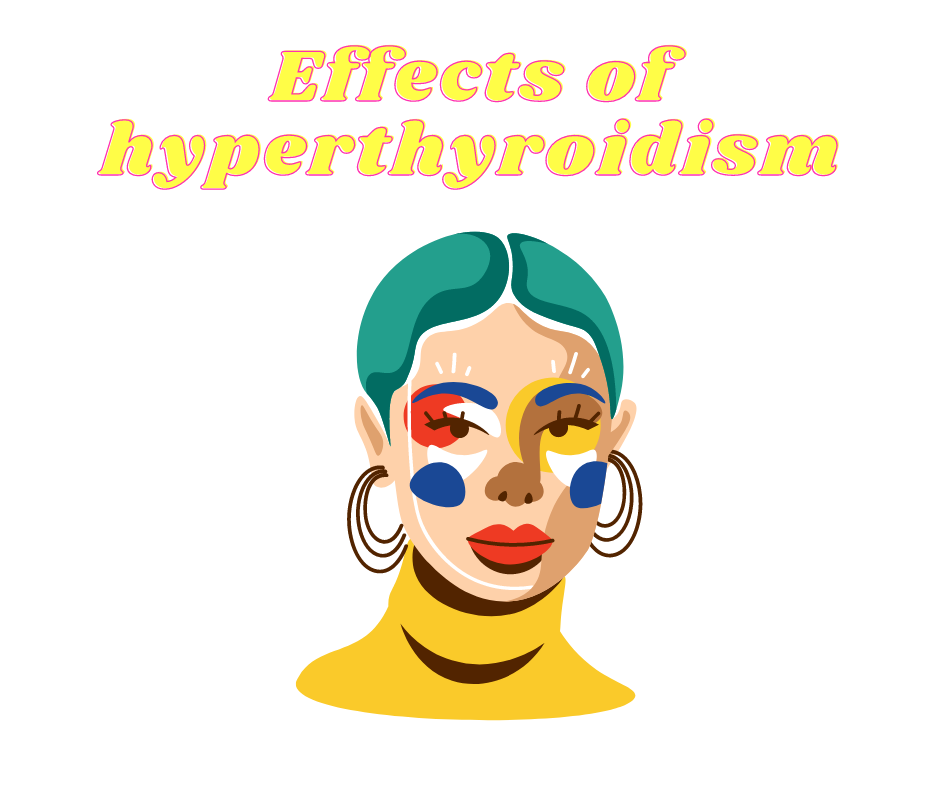Diseases of the thyroid gland can directly modify the normal function of the heart, cause symptoms and lead to serious complications. To understand how they affect the heart, it is important to first understand how the heart works.
The heart is a muscle made of cavities whose walls contract and circulate the blood all over the body. Because of the valves inside the heart, blood flows ordinarily only in one direction. The oxygen-poor blood returns to the heart by the veins, the inferior and superior vena cava into the right atrium and the right ventricle of the heart pump the blood into the lungs. From there, the oxygen-rich blood returns to the left atrium within pulmonary vein and the left ventricle from which it is ejected into the arteries which distribute the blood to the various organs of the body.
When it comes to effects of hyperthyroidism, it is important to understand two principles. First, because the heart itself is a muscle, it needs oxygen to function and receives oxygen through special arteries called coronary arteries. If these coronary arteries have a disease that causes an obstruction in the lumen of the vessel (atherosclerosis), resulting in reduced blood flow to the coronary artery, the heart muscle then functions with insufficient oxygen supply and that can cause heart pain, or “angina pectoris”. Second, in order for the heart to beat in a coordinated fashion and expel blood evenly and efficiently, the heart muscle is stimulated to contract in a synchronized manner by specialized tissue inside the heart that emits electrical impulses. The impulse normally starts from the top of the right atrium and descends as it spreads through the heart.
Effects of hyperthyroidism
An increase in the level of thyroxine (T4) secreted by the thyroid gland stimulates the heart, which then beats faster and stronger. Almost all of the T4 (and T3) found in the blood is bound to protein, but only free T4 and T3 can bind to receptors. At first, higher levels of FT4 and FT3 can cause a rapid heartbeat, called tachycardia. A nurse or doctor will detect this condition, but usually the patient will not even notice effects of hyperthyroidism. However, if the accelerated heart rate get worse, the patient may feel palpitations, which means that he will be aware of the heartbeat in his chest. But sometimes even healthy people can experience this as a result of excessive exercise or after consuming too much caffeine (coffee, tea, energy drinks). However, if this occurs at rest and it is a prolonged fast heart rate, then it can be result of abnormal effects of hyperthyroidism.
On the other side, palpitations can occur in other types of heart disease, but if they are caused by hyperactivity of the thyroid gland, that does not necessarily mean that there is a serious underlying heart disease. In some patients prolonged heart stimulation with thyroxine may cause a lack of coordination of conduction of electrical impulses within the heart which can lead to an episode of atrial fibrillation may result. This occurs when pulses from the right atrium, instead of being routed normally into the ventricles, short-circuit the atria and turn rapidly in circles, causing an inadequate atrial contraction, a loss of regular stimulation of ventricles and irregular heartbeats.
Prolonged stimulation of the heart’s contraction can cause a rise in blood pressure called systolic hypertension. Normally, the diastolic blood pressure is not higher in these patients. The accelerated contraction of the heart, which results in increased cardiac output, makes it easy to feel the pulse on the wrist and contributes to the moist heat of the hands.
Complications of hyperthyroidism
Prolonged untreated stimulation of heart rate and contractions can lead to the following two complications: angina pectoris and heart failure. Angina occurs when the heart muscle does not get enough oxygen, which causes discomfort in the center of the chest, which can also be felt in the throat, neck or jaw, and in the arms (often the arm left).
In severe cases, the individual does not feel a simple discomfort but a real pain. If this pain is not treated, it can result in a true heart attack or myocardial infarction, which damages an area of the heart muscle in an irreversible way and it can be fatal. Heart failure can occur when the increased effort required of the heart by rapid electrical stimulations and increased contractions causes a weakening of the heart muscle which then can no longer efficiently pump blood from the lungs to the rest of the body.
The usual symptom is therefore shortness of breath due to congestion of blood in the lungs. One of symptoms also can be a swelling of the ankles. Usually, angina pectoris and congestive heart failure do not occur in young hyperthyroid patients whose heart is healthy and strong. However, in older patients with underlying heart disease, the presence of an overactive thyroid gland may be sufficient to unmask the underlying heart disease and worsen the symptoms that are already present.

